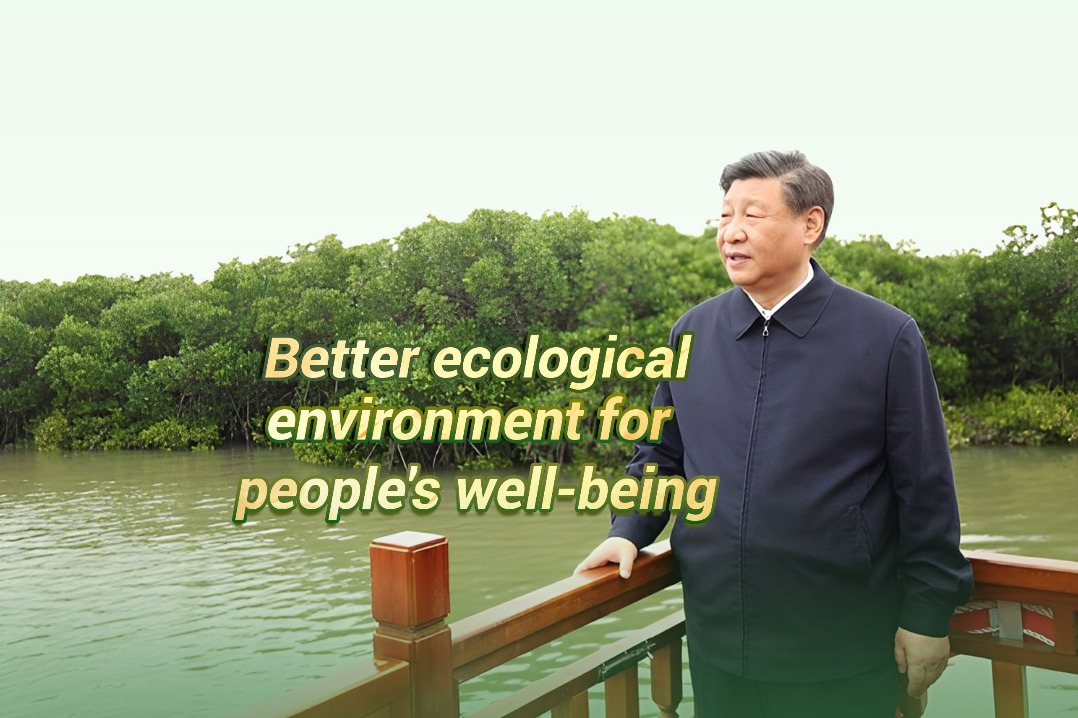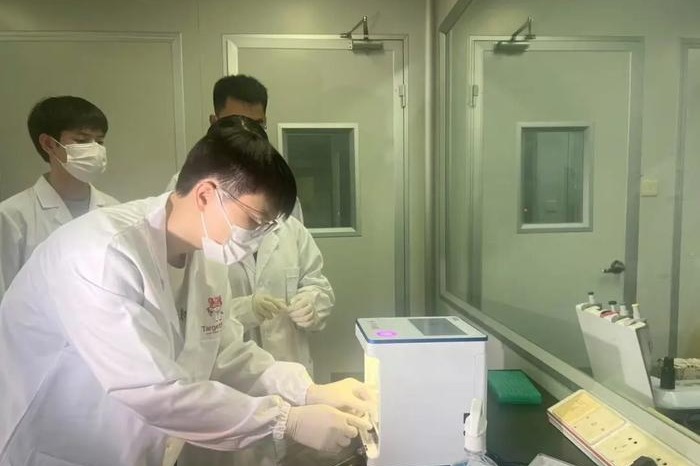Two-way lending services link nation, world
StanChart, Citi redefine international banking by serving Chinese clients overseas

Many foreign banks have created teams committed to serving Chinese clients in markets outside China. This has become necessary as more and more Chinese companies are expanding globally to invest and develop business worldwide.
Standard Chartered Bank has formed China corridor teams in more than 20 economies participating in the Belt and Road Initiative, to provide its clients with customized solutions matching common practice in those markets.
Members of the teams are either sent abroad or hired locally by the bank. Fluent in Chinese, they are familiar with Chinese companies and the China market. They serve as a connecting point between Chinese clients overseas and their colleagues who specialize in different types of financial services.
"In the past, Chinese companies expanding their business internationally were mainly export-oriented. What they cared about was whether they could sell their products in target overseas markets and whether their products received a warm welcome from local consumers," said Stephen Qiu, executive director of China Corridor Banker at Standard Chartered Bank in Europe.
"Nowadays, however, we find that a growing number of clients are taking a long-term competition strategy by making strategic investments for the long run. They tend to develop strategic operations. Our clients are also going deeper and deeper in their own industries during their global expansion. They now care about investment consulting services including recommendations on mergers and acquisitions, risk management throughout the entire project, and post-acquisition investment and financing plans to run a long-term project."
As a result, Standard Chartered is providing more consulting and facilitation services to its Chinese clients in Europe, rather than simply offering cash management and trade financing services.
"When the phase of investment and financing is over, what Chinese companies care most about is how the firms they acquired in other economies will continue to develop steadily or how to accelerate business growth of the acquired firms using our bank's advantages as a bridge connecting the Chinese and international markets," Qiu said.
For example, a Chinese equipment manufacturer, which is a client of Standard Chartered, acquired a German company. The acquired company later considered investing in China and exporting its technologies to the China market, so the bank helped the company make an investment in the country, offering facilitation services during the process of its investment approval and project landing.
"As a bridge connecting the East and the West, we used to help Chinese companies expand their business in the West. But an important trend we have seen in recent years is that we are also serving the European firms acquired by Chinese companies to explore new markets in China," Qiu said.
Another noticeable trend is that a growing number of private companies are going global and they are increasingly taking the lead in technology innovation, whether domestically or internationally. Apart from serving their European clients, China's private companies are leading some big changes in their industries after they expanded into Europe, he said.
Like Standard Chartered, US-based Citigroup Inc, or Citi, maintains 12 China Desks around the world, out of 32 Asia Desks it has globally.
"The desks where we sent people out overseas are typically staffed by Chinese mainland residents who we hire and train here (in China) and then give them an opportunity to go out into the Citi network and be global bankers," said Gerald Keefe, Citi's global head of corporate and public sector sales, treasury and trade solutions, during a visit to Beijing last year while he was head of Citi Asia-Pacific corporate banking.
A China Desk banker would be part of an industry vertical in a country if there is a large group of Chinese companies, but that person would probably be a generalist if the Chinese companies operating in that country are spread across industries.
"If a banker in the China Desk is a generalist, he/she is locally connected to the industry teams in that country because the idea is that the banker can cover the Chinese clients in Chinese language to the standard that Chinese clients are accustomed to being dealt with and in the sort of manner and style that they are used to be handled," Keefe said.
"Our Chinese clients have a very high standard for turnaround time and a very high expectation of how hard their bankers are going to work. So we sent bankers out to meet those expectations in local language because it makes the whole interaction of the Citi network with those clients more effective."
In recent years, the number of fintech companies entering the European market kept rising because Europe has higher standards for personal information and data protection. Many companies believe that once they successfully enter the European market, it will be easier for them to enter the other markets, said Bob Zhang, Citi's China Desk head in Europe.
"New economy companies make decisions quickly and require banks to respond faster than they do to the companies in traditional sectors …This raised new challenges and gave us opportunities to optimize our internal procedures and accelerate our product innovations," Zhang said.
Since the outbreak of COVID-19, Chinese investment in Europe has been slowing, especially after many European countries imposed lockdowns.
"We are working closely with the Citi China team to update our clients' headquarters on the pandemic and allocate credit facility to support clients' working capital needs in Europe. We have this 'virtual roadshow' that gives our Chinese clients first-hand information on political, economic and public health updates of the countries where their overseas businesses are located," Zhang said.
The business momentum is picking up as China is getting back to normal, with the TMT(technology, media and telecom) and fintech sectors continuing to expand, he said.

Today's Top News
- Books of Xi's discourses on adhering to deepening reform comprehensively published
- China holds 2nd rehearsal for event marking 80th anniversary of victory over Japanese aggression, fascism
- Foreign athletes embrace culture, innovation at Chengdu World Games
- Meet again? Putin says: Next time in Moscow
- Zelensky to meet Trump in Washington on Monday
- Wang Yi to visit India from Monday






























